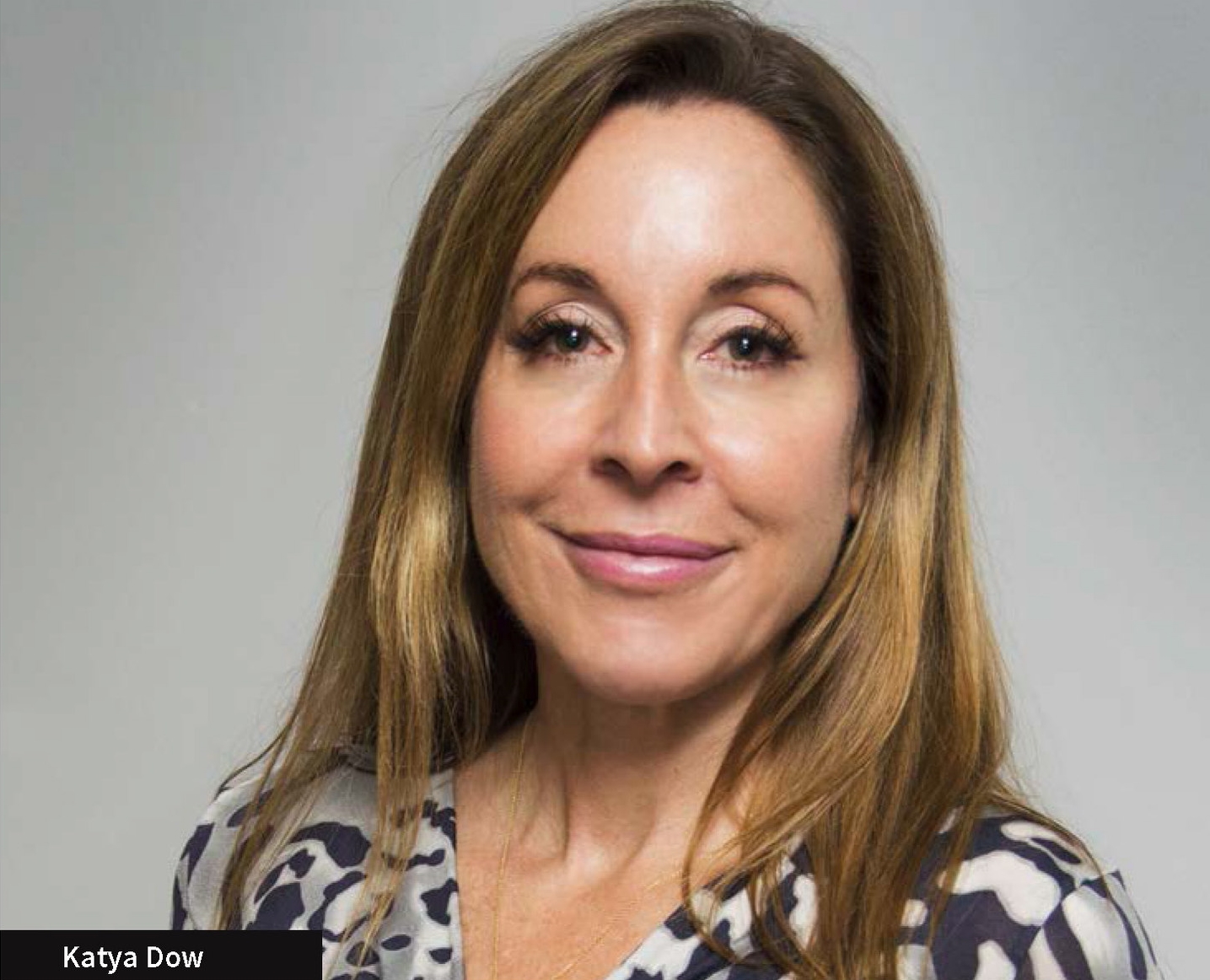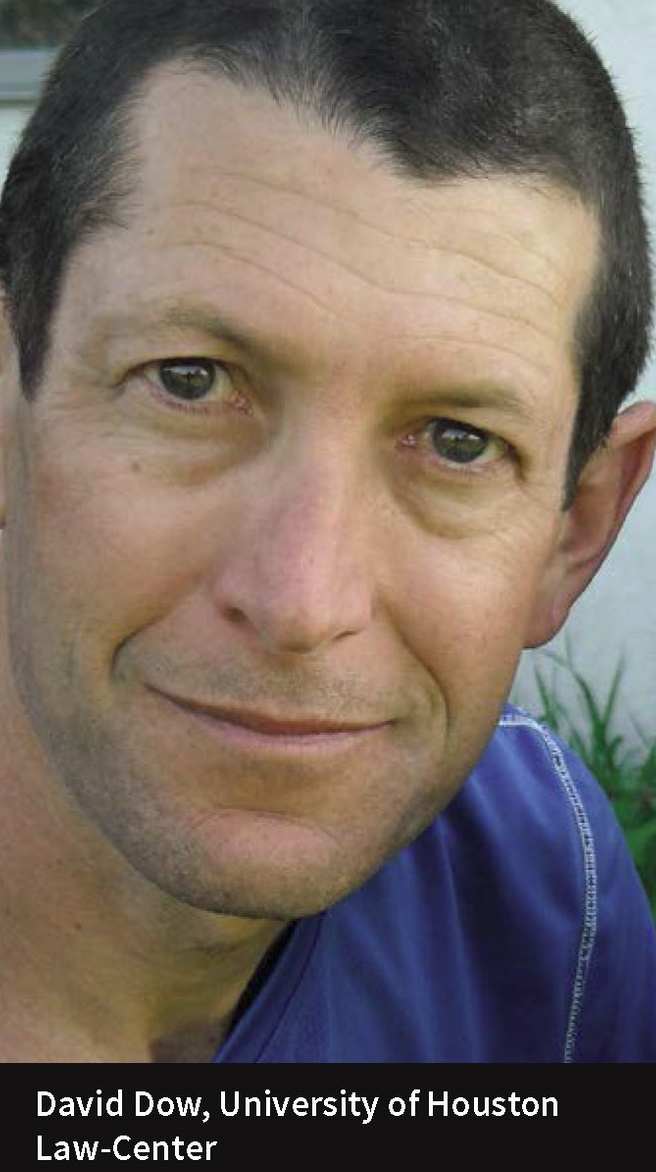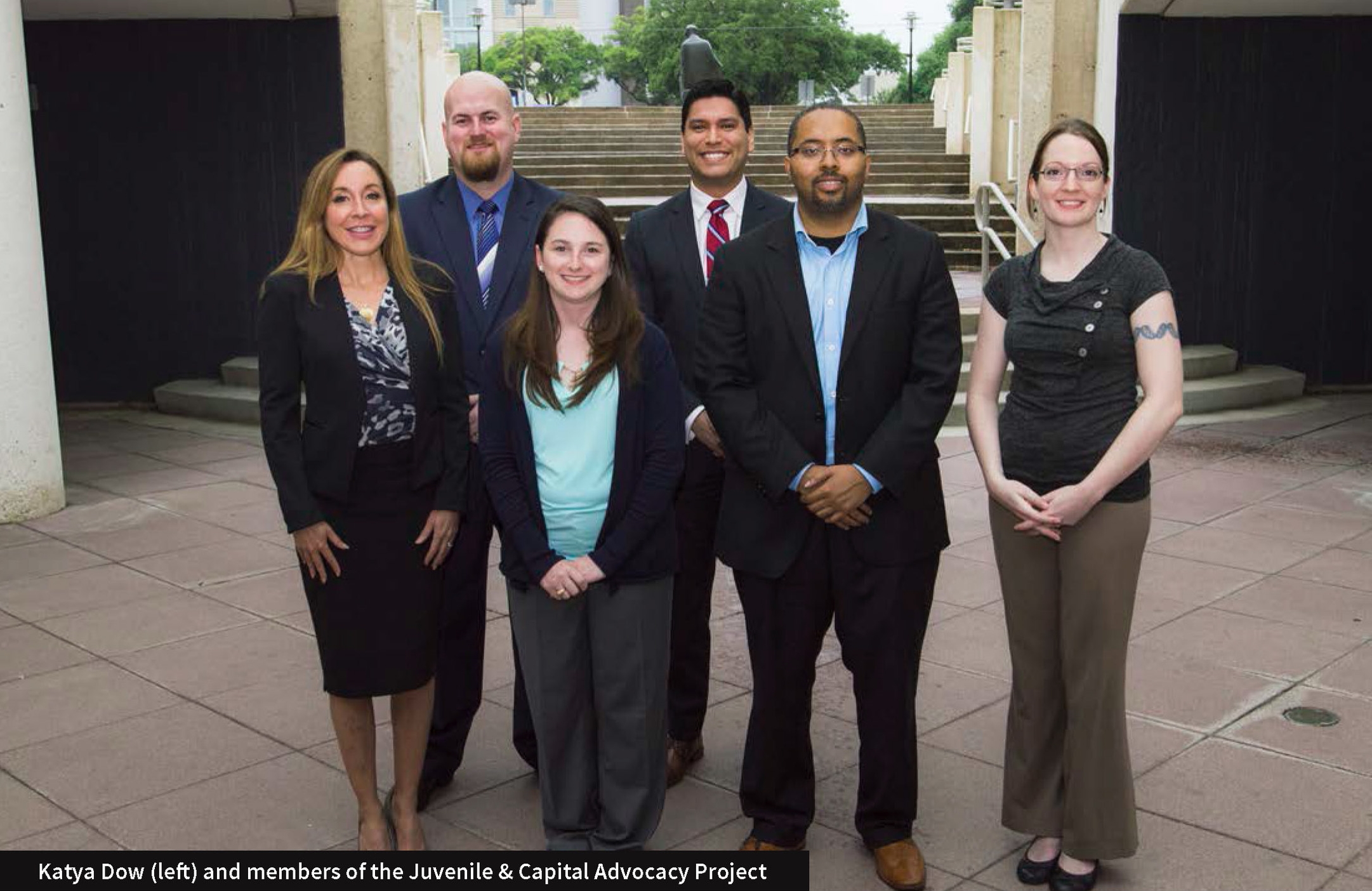David Dow, a distinguished professor at the University of Houston Law Center and founder of the Texas Innocence Network, which represents death-sentenced inmates, is spear-heading two new programs: one involving mentoring at-risk middle school students and the other focuses on sealing juvenile offenders’ records. Though each of these programs is run separately, Dow, a Houston, Texas, native and Yale Law School graduate, said “At some point we intend to fold the three different programs into one corporate umbrella.”
David Dow, a distinguished professor at the University of Houston Law Center and founder of the Texas Innocence Network, which represents death-sentenced inmates, is spear-heading two new programs: one involving mentoring at-risk middle school students and the other focuses on sealing juvenile offenders’ records. Though each of these programs is run separately, Dow, a Houston, Texas, native and Yale Law School graduate, said “At some point we intend to fold the three different programs into one corporate umbrella.”

Dow explains that the three programs are interconnected. Each program represents mostly poor and disadvantaged youths or offenders who often don’t receive a fair shake from the justice system or are unaware of opportunities available for them.
Over the last 25 years, Dow has been fighting for the rights of death row inmates. “In the course of doing this work, I’ve concluded that if my client had a legal and social support network when he had been much younger or in middle school, he wouldn‘t have ended up as my client,” he said.
That triggered the formation of the Juvenile & Capital Advocacy Project (JCAP) in fall 2014, an offshoot of the Texas Innocence Network. When presenting a TED (Technology, Entertainment and Design) Talk, Dow proposed mentoring middle-school students to enlighten them about their many opportunities, including higher education.
Providing them with options and alternatives would steer them in the right direction and deter them from choosing any kind of criminal activity and, over the long haul, prevent them committing any capital crimes. He received a modest stipend from the University of Houston Law Center to springboard the project.
JCAP mentors 70 middle schoolers from the William A. Lawson Institute for Peace and Prosperity in Houston. It focuses on disadvantaged youth who live in high crime or low-income neighborhoods. “Are all of them going to do something horrible? Of course not,” Dow said. Mentoring teenagers, however, is a way to deter criminal activity and nip it in the bud.
“Kids in Texas particularly who get arrested or charged with nickel and dime felonies when they’re a juvenile and commit what are just youthful missteps can be haunted by them for the rest of their lives. What we’re doing is fishing in the pond,” Dow said. Hence, JCAP is sending a message that college and careers are possible and so is success.

Many mentors are doctors, attorneys and professionals who live outside of the more insulated inner city neighborhoods. Dow envisions tripling the program so that 200 students could be mentored in the future.
Seeing how the release of juvenile records can damage a teenager for extended periods contributed to Dow’s introducing a clinical course at the University of Houston Law Center in sealing juvenile records. It is taught by Katya Dow, his wife, an adjunct professor at UH Law Center.
Many youthful offenders aren’t even aware that their juvenile records are exerting damaging impact on their lives. For example, when the youthful offender applies for a job at a fast-food eatery, and a background check is executed, the applicant will be rejected without any explanation. “They don’t know why they’re not hired or why their loan for college has been denied,” Dow explained.
While the juvenile offenders gain from ensuring that their youthful crimes are sealed, so do the University of Houston law students researching their cases. “They get to learn how to practice law in a way that is valuable. They can help a kid get a job, gain financial aid and go to college,” Dow pointed out.
Katya Dow who teaches the Juvenile Record Sealing class says law students are trained how to meet with their clients, sign an affidavit and obtain the sealed records in court. Then they’re taught to file the proper paperwork for the judge and obtain a hearing date and then transmit the information to relevant agencies. By law after two years, all juvenile records must be sealed.
“It gives them the opportunity to experience what it means to practice law in the real world. It’s something you don’t often do in law school,” Katya Dow noted. Some of these law students will use these skills if they specialize in juvenile law or handle criminal cases.
However, law students can’t argue at hearings because they haven’t passed the bar exam, so Katya Dow represents the juveniles at every hearing, keeping her busy. All the legal work executed for the juveniles is done pro bono, so they don’t have to pay attorneys or law students.
Of the 11 students enrolled in the record sealing class, four were minorities including three Latinos and one African-American. “Many Latino and African American students come to law school with the hope of being able to help their communities, and this program allows them to do that,” she said.
Third-year Houston Law Center student Ruben Ramirez, slated to graduate in May 2016, took the juvenile record sealing class. Raised in Edinburg, Texas, he wants to give back to the community when he becomes a trial lawyer. He notes that most of the juvenile infractions committed are minor and yet, if released, could have devastating impact on their life.

Ramirez says the three main skills he learned in the class were: 1) client management and juggling multiple classes simultaneously, 2) drafting the petition and court order for sealing juvenile records and 3) coaxing clients to overcome their fears of the judicial system.
Having taken the class, Ramirez can now “assist eligible juveniles from our community in sealing their records. I have screened clients for eligibility, walked them through the process, drafted their petition and order for record sealing, filed their petition and served notice of the hearing to relevant agencies.”
Ramirez compares what Professor Dow has done in the class to an old maxim: Give a man a fish, he eats for a day. Teach a man to fish, and he will eat for the rest of his life.
These three programs concerning death penalty grievances, mentoring of poor teenagers and sealing of juvenile crimes are interrelated because they all deal with “poverty issues and criminal justice issues. It doesn’t matter if you’re liberal or conservative, but if a kid makes a mistake when they’re 13 or 14, it shouldn’t haunt them for the rest of their life,” Dow exclaimed.
In the future, David Dow intends to expand the mentoring program to include sixth and seventh graders not just eighth graders. He’d also like to extend the juvenile seals record program to assist a greater number of youthful offenders. “I’d like to see more technological changes to make it less tedious to seal juvenile records,” he added.